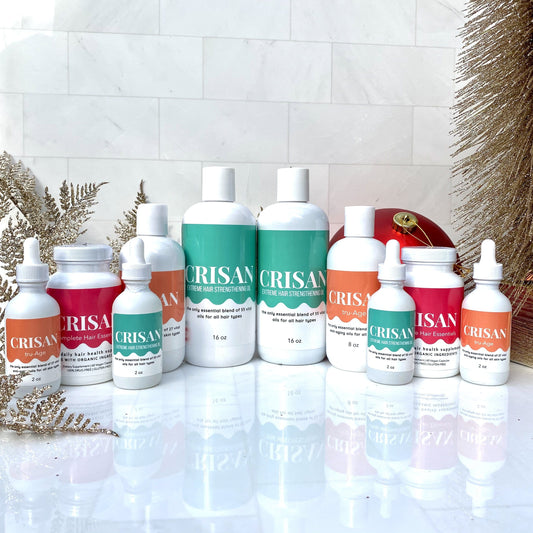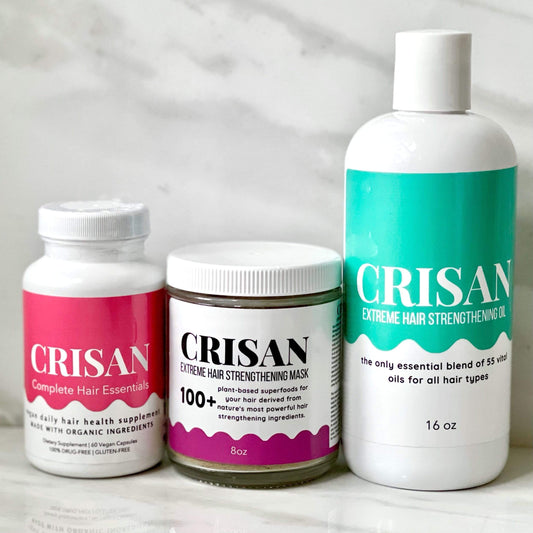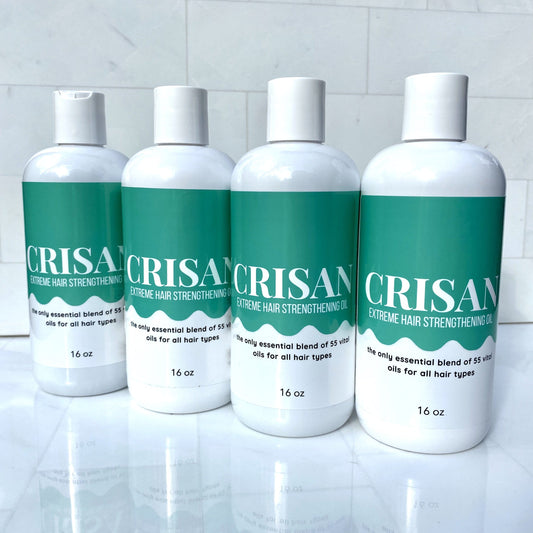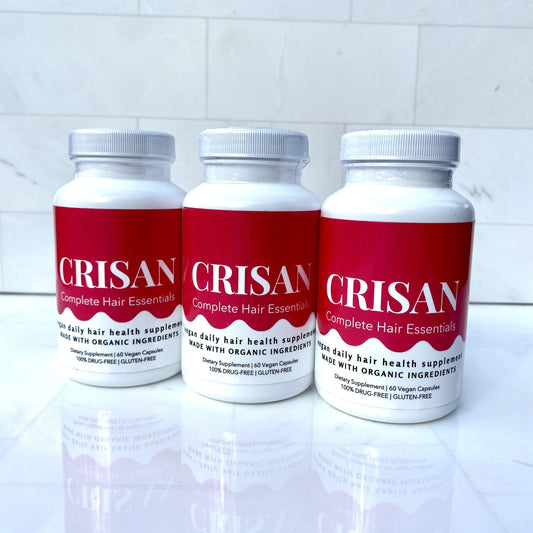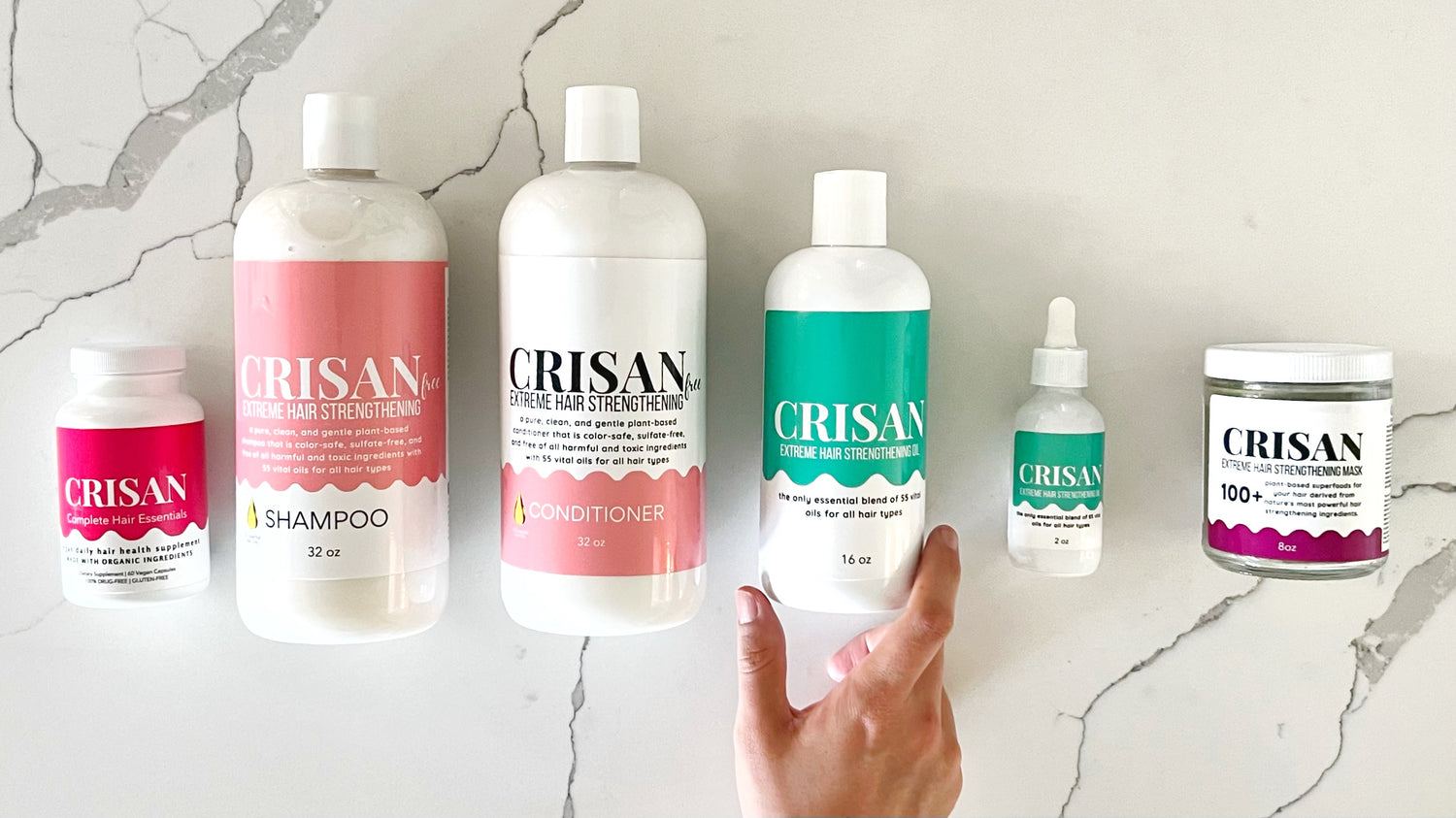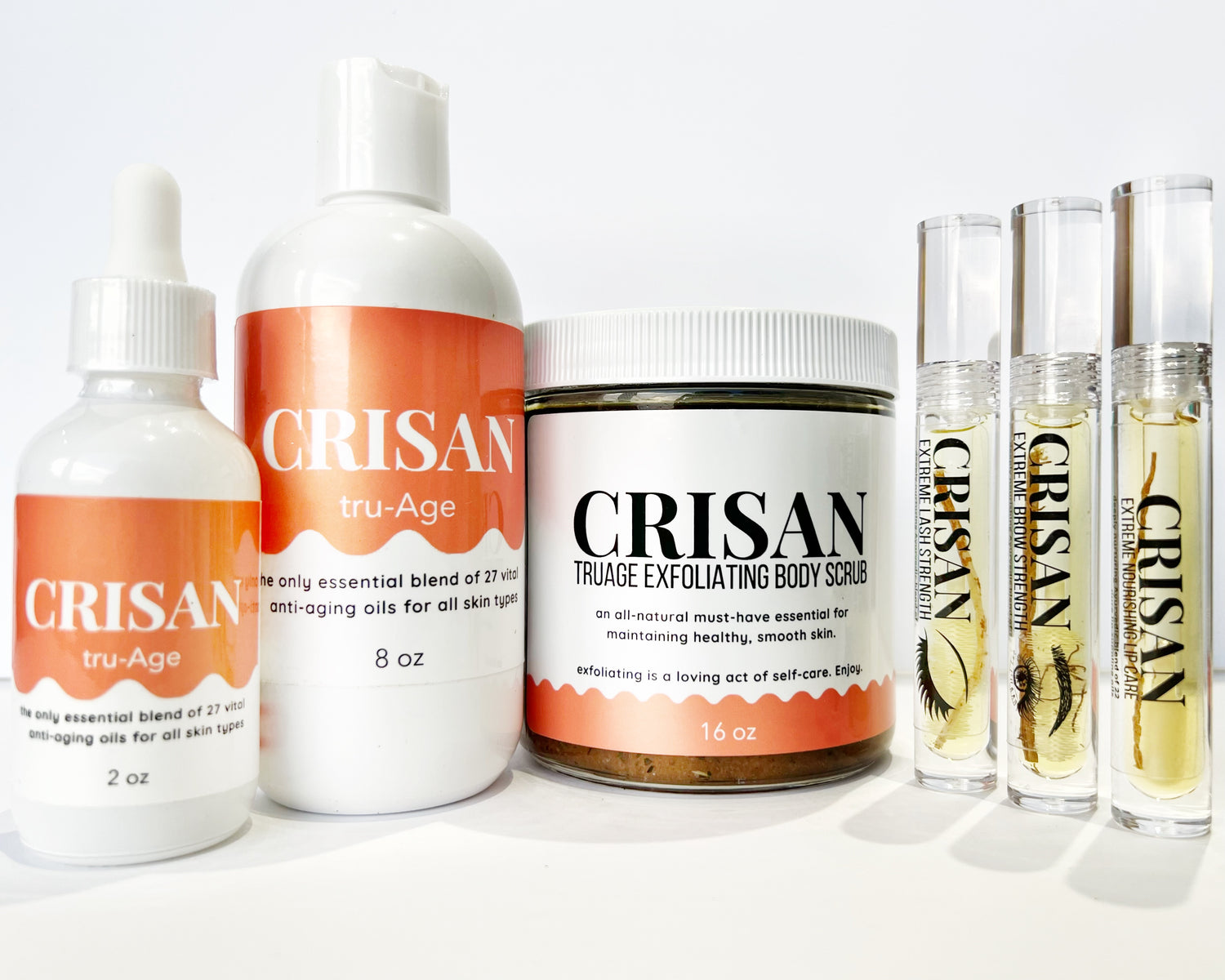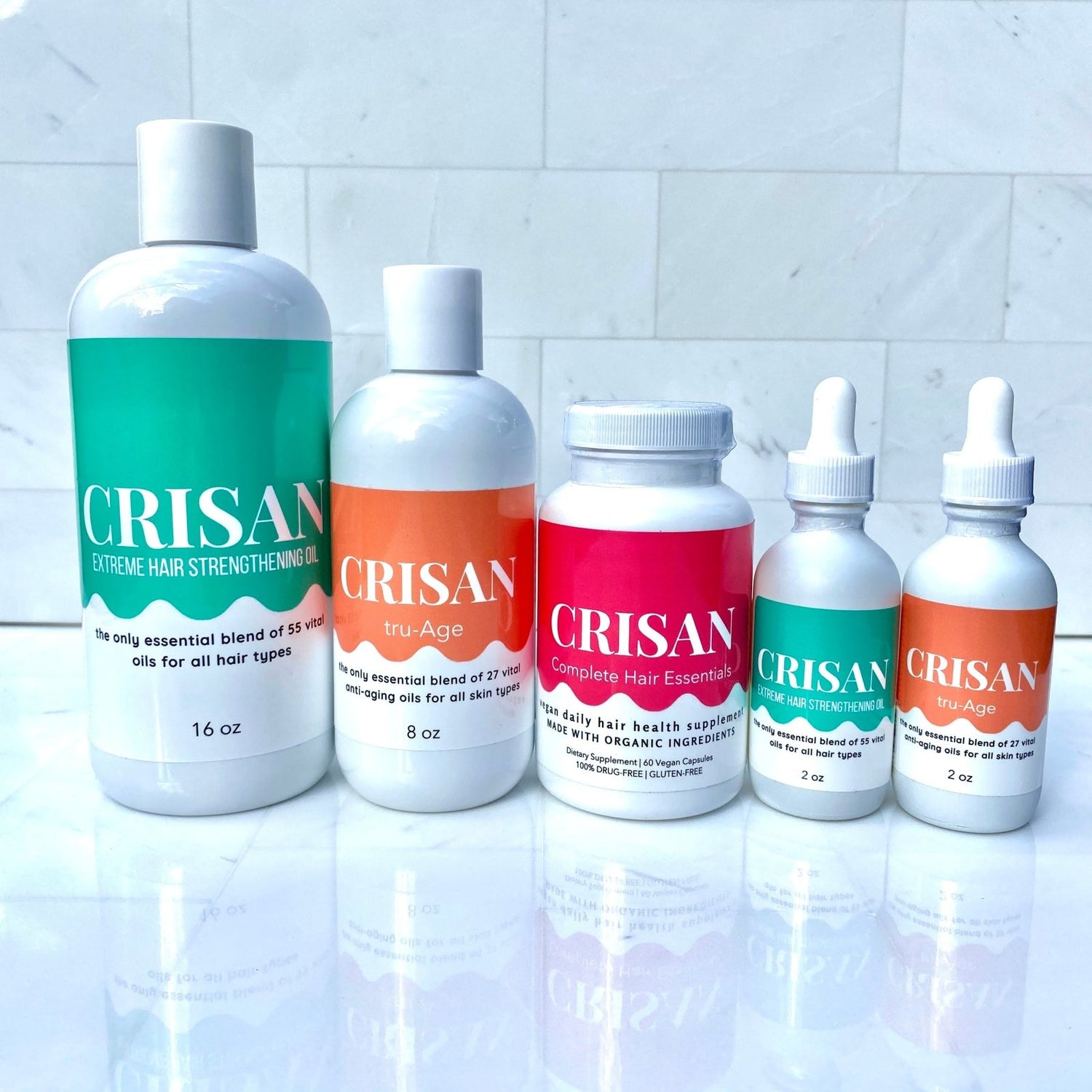Hair thinning can be a distressing experience, affecting one's self-esteem and overall well-being. While there are numerous treatments available, many people are turning to natural solutions to address this issue. This article explores various effective natural remedies and lifestyle changes that can help promote healthier, thicker hair.
Key Takeaways
- Understanding the root causes of hair thinning is crucial for effective treatment.
- A nutrient-rich diet plays a significant role in maintaining hair health.
- Herbal remedies like rosemary oil and aloe vera can strengthen hair and reduce thinning.
- Essential oils such as lavender and peppermint oil can promote hair regrowth.
- Incorporating scalp care practices and making lifestyle changes can prevent further hair thinning.
Understanding the Causes of Hair Thinning
Common Triggers of Hair Thinning
Thinning hair typically happens gradually, which means you have time to pinpoint the causes and figure out the best treatment measures. Thinning hair may be caused by lifestyle habits, genetics, or both. Certain medical conditions may also lead to thinning hair. Lifestyle factors could include using certain hair products, wearing your hair up too tightly, experiencing high stress levels, or not getting enough of certain vitamins and minerals in your diet.
The Role of Genetics in Hair Loss
Hair grows in stages. The first stage is active growing (anagen), which involves about 90% of your hair. The second stage, called catagen, is when your hair starts to die. The final stage, called telogen, is the resting phase when your hair sheds. These two stages each affect about 5% to 10% of your hair. Your hair normally sheds 50 to 100 hairs per day. Shedding more than this amount, having a widening part, or having patches of no hair are all signs of hair loss.
Impact of Hormonal Changes on Hair Health
The methods for addressing thinning hair can vary by its cause. If the reason is an illness or vitamin deficiency, treating that underlying cause may support hair health and promote regrowth. Other causes, such as giving birth, extreme weight loss, and stress, may cause temporary hair thinning that resolves as the body recovers. If your hair is thinning due to other reasons, you may be able to try topical products, such as shampoos and even prescription medications.
Nutrient-Rich Diets for Healthier Hair
A balanced diet rich in vitamins, minerals, and proteins nourishes hair follicles from within. Replenishing iron, vitamin D, and B12 (among others) can help. You can incorporate these by eating more foods like leafy greens, eggs, nuts, and fish. A healthy diet can supply the essential nutrients you need for healthy hair.
Essential Vitamins and Minerals
So, what nutrients do you need for a healthy head of hair? Well, here are some of the most important vitamins and nutrients:
- Vitamin A
- Vitamin B
- Vitamin C
- Vitamin D
- Vitamin E
- Iron
- Selenium
- Zinc
Foods That Promote Hair Growth
Protein is important to strengthen hair and promote growth. The recommended daily amount is about two to three 3-ounce servings of meat or a combination of four to five servings of dairy and beans. Including nuts and seeds, eggs, and fish in your diet is beneficial as they are important sources of omega-3 fatty acids, which help lower inflammation and create a healthier scalp.
Hydration and Hair Health
Healthy hair is dependent on your overall good health. In cases of malnourishment or with certain eating disorders, new hair may fail to generate from follicles. A blood test can help determine if you have a nutrient deficiency.
Healthy hair is dependent on your overall good health. In cases of malnourishment or with certain eating disorders, new hair may fail to generate from follicles. A blood test can help determine if you have a nutrient deficiency.
Herbal Remedies for Hair Thinning
Herbal remedies have been used for centuries to address various health concerns, including hair thinning. These natural solutions can be effective in promoting hair growth and improving overall hair health. Discover natural remedies for thinning hair in 2024 and explore how these time-tested herbs can make a difference.
Benefits of Rosemary Oil
Rosemary oil is known for its ability to stimulate hair growth by improving blood circulation to the scalp. This essential oil can be used in various ways, such as adding a few drops to your shampoo or creating a homemade hair mask. Regular use of rosemary oil can help strengthen thinning hair and promote a healthier scalp.
Using Aloe Vera for Hair Strength
Aloe vera is a versatile plant that offers numerous benefits for hair health. It contains enzymes that promote hair growth and reduce scalp inflammation. Applying aloe vera gel directly to the scalp can help soothe irritation and strengthen hair follicles. This natural remedy is an excellent option for those looking to thicken hair with organic treatments.
The Power of Green Tea
Green tea is rich in antioxidants that can help reduce hair loss and promote hair growth. Drinking green tea regularly or using it as a rinse for your hair can provide significant benefits. The catechins in green tea help to reduce dihydrotestosterone (DHT), a hormone linked to hair loss. Incorporating green tea into your hair care routine can be a simple yet effective way to use organic herbs for hair thinning.
Herbal remedies like aloe vera, rosemary oil, and ginseng promote hair growth. Scalp care and massage techniques improve hair health.
By integrating these herbal remedies into your daily routine, you can take a natural and holistic approach to combat hair thinning. Whether you choose to use rosemary oil, aloe vera, or green tea, these natural solutions offer a gentle and effective way to support your hair health.
Essential Oils for Hair Regrowth
Essential oils are a powerful ally in the journey to regrow hair naturally. They are concentrated plant extracts that retain their organic properties, making them an excellent choice for those looking to improve hair health through natural means. Essential oils and fatty acids are absolutely critical to a healthy scalp. Any oil for hair is designed to penetrate the hair follicle and shaft, helping to produce healthy, shiny hair and encourage new hair growth.
How to Use Lavender Oil
Lavender oil is known for its calming properties, but it also has significant benefits for hair regrowth. To use lavender oil, mix a few drops with a carrier oil like coconut or jojoba oil. Apply this mixture directly to your scalp and massage gently. This not only helps in stimulating hair growth but also improves blood circulation, which is essential for healthy hair.
Benefits of Peppermint Oil
Peppermint oil is another excellent essential oil for hair regrowth. It has been shown to promote hair growth without toxic signs. To use peppermint oil, mix a few drops with a carrier oil and apply it to your scalp. The cooling sensation of peppermint oil can also help to soothe an itchy scalp and reduce dandruff.
Incorporating Tea Tree Oil
Tea tree oil is well-known for its antimicrobial properties, making it a great choice for maintaining a healthy scalp. To use tea tree oil, mix a few drops with a carrier oil and apply it to your scalp. This can help to unclog hair follicles and nourish your roots, promoting healthier hair growth.
For those looking to explore natural ways to promote hair growth and improve hair health, essential oils offer a promising solution. They are easy to incorporate into your daily routine and can be used in various ways to support hair regrowth.
If you're interested in learning more about how to use organic essential oils for hair thinning or how to make homemade organic hair growth serum, essential oils are a great place to start. They offer a natural, effective way to regrow hair and improve overall hair health.
Scalp Care Practices to Prevent Hair Thinning
Taking care of your scalp is crucial in preventing hair thinning and promoting healthier hair growth. How to create an organic hair care routine for thinning hair involves several key practices that can make a significant difference.
Importance of Scalp Massage
Scalp massage is perhaps the most affordable and accessible method to encourage hair growth. When you wash your hair, gently apply pressure with your fingertips around your scalp to encourage blood flow. For even more benefits, you can try a handheld scalp massager to also remove dead skin cells. This practice can be a cornerstone in how to improve scalp health with organic solutions for thinning hair.
Choosing the Right Shampoo
Selecting the right shampoo is essential. Opt for gentle, organic shampoos that do not contain harsh chemicals. These products can help maintain the natural oils of your scalp and hair, reducing the risk of further thinning. This is a key step in how to prevent hair thinning with organic products.
Avoiding Harmful Hair Products
It's important to avoid hair products that contain sulfates, parabens, and other harmful chemicals. These substances can strip your hair of its natural oils and cause further damage. Instead, look for products that are specifically designed for thinning hair and are made from natural ingredients. This is a vital aspect of how to stop hair loss using organic hair care products.
While you may be focused on reversing thinning hair, it’s also important to practice good hair care techniques. Consider gentle hair products when available, and comb and brush hair only when needed. You can also place less stress on your hair by limiting the use of heated styling tools as well as tight hairstyles.
Lifestyle Changes to Support Hair Health
Making lifestyle changes can significantly impact the health of your hair. By incorporating certain habits and routines, you can promote hair growth and prevent further thinning.
Managing Stress Levels
Stress is a major contributor to hair thinning. Engaging in relaxation techniques such as meditation, yoga, and deep-breathing exercises can help manage stress-related hair loss. Lowering stress levels through these practices can have a positive effect on your hair health.
Getting Adequate Sleep
Adequate sleep is essential for overall health, including hair health. Aim for 7-9 hours of quality sleep each night to support your body's natural repair processes. Poor sleep can lead to various health issues, including hair thinning.
Regular Physical Activity
Regular exercise improves blood circulation, which in turn promotes healthy hair growth. Activities like walking, jogging, or swimming can be beneficial. Incorporating physical activity into your daily routine can help maintain healthy hair.
Consistent lifestyle changes, such as managing stress and getting enough sleep, can make a significant difference in the health of your hair.
DIY Hair Masks and Treatments
Coconut Oil and Honey Mask
Coconut oil and honey are a powerful combination for nourishing and strengthening hair. Coconut oil is known for its deep conditioning properties, while honey adds moisture and shine. To make this mask:
- Mix 2 tablespoons of coconut oil with 1 tablespoon of honey.
- Apply the mixture to your hair, focusing on the ends.
- Leave it on for 20-30 minutes.
- Rinse thoroughly with warm water and shampoo as usual.
Avocado and Olive Oil Treatment
Avocado is rich in vitamins and healthy fats that can help repair and strengthen hair. Olive oil adds extra moisture and shine. Here's how to create this treatment:
- Mash one ripe avocado in a bowl.
- Add 2 tablespoons of olive oil and mix well.
- Apply the mixture to your hair, starting from the roots to the tips.
- Leave it on for 30 minutes.
- Rinse thoroughly and shampoo.
Egg Yolk and Castor Oil Remedy
Egg yolk is packed with proteins and nutrients that can promote hair growth and thickness. Castor oil is known for its ability to improve hair density. To prepare this remedy:
- Beat one egg yolk in a bowl.
- Add 1 tablespoon of castor oil and mix until well combined.
- Apply the mixture to your scalp and hair.
- Leave it on for 30 minutes.
- Rinse with cool water and shampoo.
Natural home remedies like these masks can be a gentle and effective way to address hair thinning. However, consistency is key, and it may take a few months to see noticeable results.
When to Seek Professional Help
Recognizing Severe Hair Loss
It's important to recognize when hair thinning becomes severe. If you notice sudden or patchy hair loss, it may be time to consult a healthcare professional. This could be indicative of an underlying medical condition that needs to be addressed. Sometimes, post menopausal hair loss can also be a significant concern, requiring specialized attention.
Consulting a Dermatologist
A dermatologist can provide a thorough evaluation of your scalp and hair health. They can perform various tests to determine the root cause of your hair thinning. If you are thinking about taking herbal extracts or supplements, talk to your doctor and a trained professional herbal practitioner first. This ensures that you are following a safe and effective treatment plan.
Exploring Medical Treatments
There are several medical solutions available for treating hair thinning. These can include:
- Prescription medications
- Topical treatments
- Hair restoration procedures
Consult a healthcare professional for a personalized approach to meet your needs and preferences while on your hair care journey.
If a medical condition is causing your hair loss, it may need to be treated. Sometimes medication is needed, but more general methods like nutrition and lifestyle changes are often tried first.
Recognizing when to seek professional help is crucial for your well-being. If you find yourself overwhelmed or unsure, don't hesitate to reach out. Visit our website to explore a range of resources and products designed to support your journey to better health.
Conclusion
Hair thinning can be a distressing experience, affecting not only your appearance but also your self-esteem and overall well-being. However, there are numerous natural solutions that can help you address this issue compassionately and effectively. From essential oils like rosemary and coconut oil to nutrient-rich options like pumpkin seed oil and green tea, these remedies focus on nourishing your scalp and promoting healthy hair growth. It's important to remember that everyone's hair is unique, and what works for one person may not work for another. Therefore, consulting with a healthcare professional can provide you with a personalized approach tailored to your specific needs. Embracing these natural solutions with patience and consistency can lead to healthier, fuller hair, helping you regain your confidence and sense of self.
Frequently Asked Questions
What are the common causes of hair thinning?
Hair thinning can be caused by a variety of factors including genetics, hormonal changes, nutritional deficiencies, stress, and the use of harsh hair products.
Can diet impact hair health?
Yes, a nutrient-rich diet that includes essential vitamins and minerals can significantly improve hair health and promote hair growth.
How do essential oils help with hair regrowth?
Essential oils like lavender, peppermint, and tea tree oil can stimulate hair follicles, improve blood circulation to the scalp, and promote hair regrowth.
Are there any effective herbal remedies for hair thinning?
Yes, herbal remedies such as rosemary oil, aloe vera, and green tea have been shown to strengthen hair and reduce thinning.
What scalp care practices can prevent hair thinning?
Regular scalp massages, using the right shampoo, and avoiding harmful hair products can help maintain a healthy scalp and prevent hair thinning.
When should I seek professional help for hair thinning?
If you are experiencing severe hair loss, it is advisable to consult a dermatologist to explore medical treatments and receive a personalized approach to address the issue.


